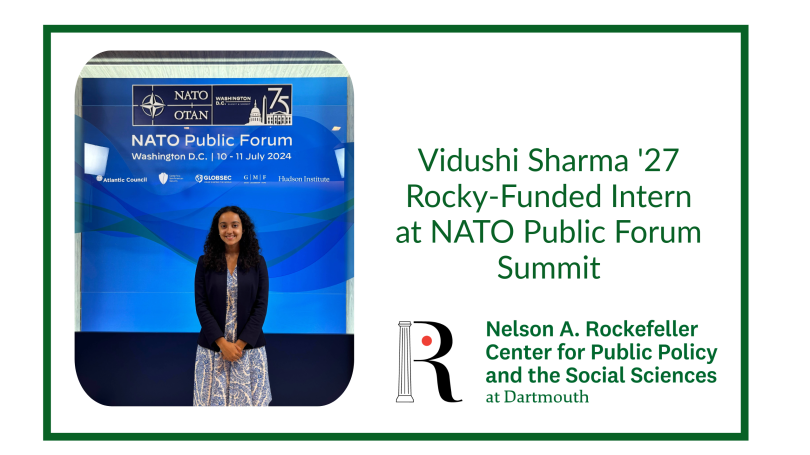

On July 10-11, I was given the opportunity to attend the North Atlantic Treaty Organization (NATO) Public Forum in Washington, D.C. through my summer internship with Senator Jeanne Shaheen of New Hampshire. The NATO Public Forum is an event held in parallel to the NATO Summit and is open to invited guests. This year, the Forum was held in collaboration with five think tanks: the Atlantic Council, The Center for New American Security, GLOBSEC, the German Marshall Fund, and the Hudson Institute. Many world leaders, foreign ministers, industry experts, etc., spoke at the Forum as way to connect more people to the Summit.
This year's NATO Summit was special, as it marked 75 years since the Organization was formed with the signing of the Washington Treaty in Washington, D.C. on April 4, 1949. While the Summit and Forum focused on Russia's war of aggression in Ukraine, the mood was also celebratory as many speakers recounted the strength and expansion of NATO over the past 75 years. It was the first Summit with new members Finland and Sweden. Here are a few of the highlights:
picture1_anthony_blinken.jpg

The Forum was opened by Secretary of State, Antony Blinken, who said that NATO was building a "clear, strong, robust, well-lit" and "short" bridge for Ukraine's accession to NATO membership. This metaphor would be repeated numerous times throughout the next two days. Blinken also announced a new support package for Ukraine, which includes sending F-16 fighter jets. Blinken asserted that a strong, independent Ukrainian state is the strongest rebuke to Russia and Putin.
picture2_lloyd_austin.jpg
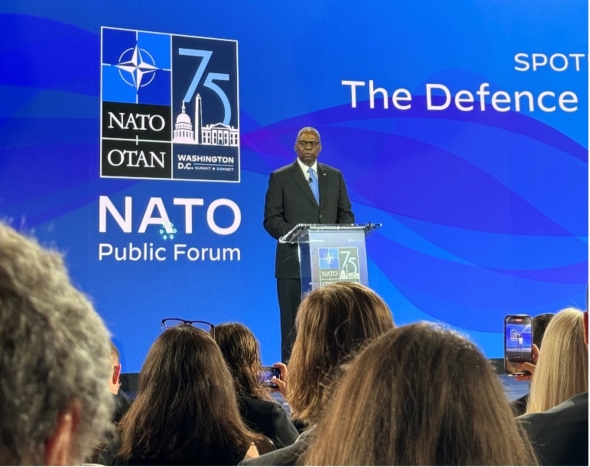
Secretary of Defense Lloyd Austin underlined many of the messages that Blinken had made. He maintained that NATO enlargement was in response to Russian aggression, not the cause of it. Austin also noted that China's support for Putin emphasized the connection between Indo-Pacific and European security.
picture3_jens_stoltenberg.jpg
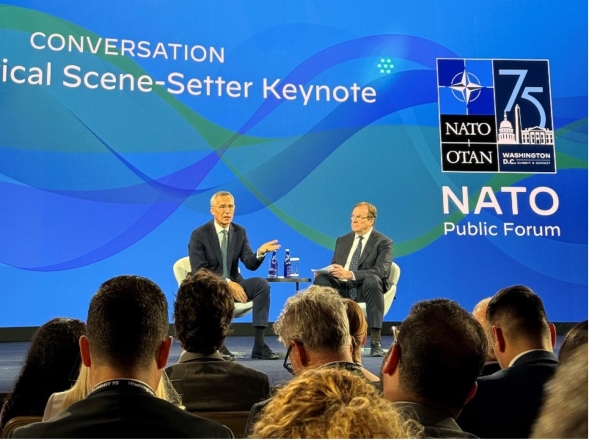
NATO Secretary General Jens Stoltenberg mentioned three of NATO's goals: reinforcing Ukraine, global defense and alliance building. Stoltenberg also said that it must be ensured that the end of the Russia-Ukraine war is also the end of Russian aggression. He stated that the way to prevent further Russian aggression is NATO membership for Ukraine.
picture4_panel_one.jpg
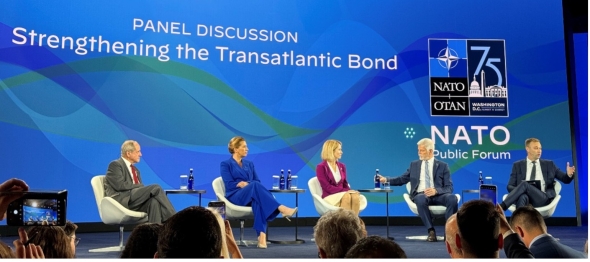
This panel was formed by Denmark's Prime Minister Mette Frederiksen, Estonia's Prime Minister Kaja Kallas, Czech Republic's President Petr Pavel and Senator James Risch (R-ID). All four reaffirmed their belief in aiding Ukraine, as well as the need to innovate in the tech and defense sectors. They also discussed Russia's recent attacks on NATO, which have included cyberattacks on some NATO countries, asserting that addressing these attacks is difficult, but must begin within NATO.
picture5_panel_2.jpg

Senators Jeanne Shaheen (D-NH) and Thom Tillis (R-NC) are the co-chairs of the bipartisan Senate NATO Observer Group, which is a way to connect U.S. legislators to NATO. Both Senators stated that Senate support for NATO is resolute, despite any potential leadership shifts in the White House.
picture6_jake_sullivan.jpg
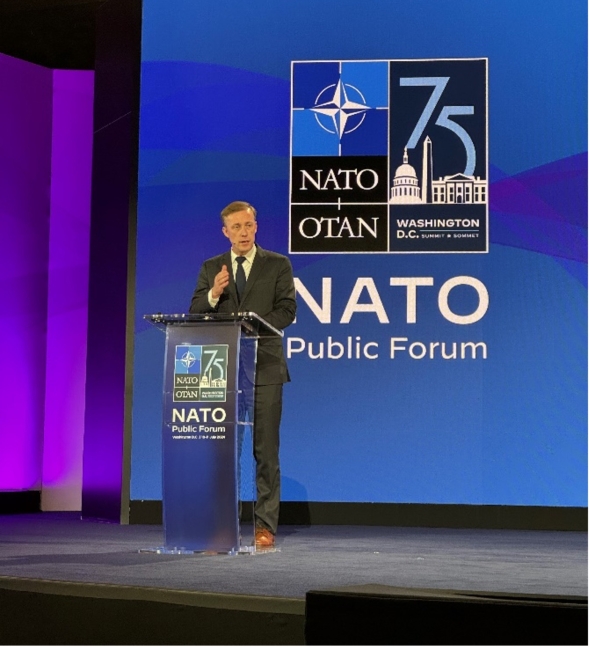
U.S. National Security Advisory, Jake Sullivan, again reiterated American support for Ukraine and asserted that the economic costs of war for Russia are mounting and compounding.
We also had the chance to meet with some very cool people!

Senator Jeanne Shaheen
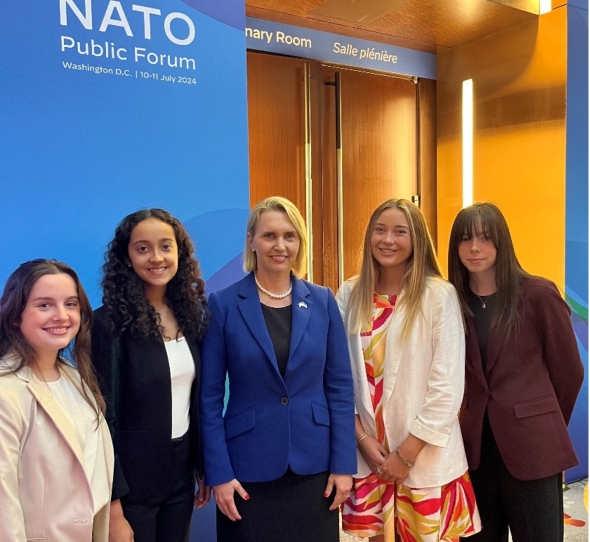
Bridget Brink, U.S. Ambassador to Ukraine
picture9_pres_of_croatia.jpg
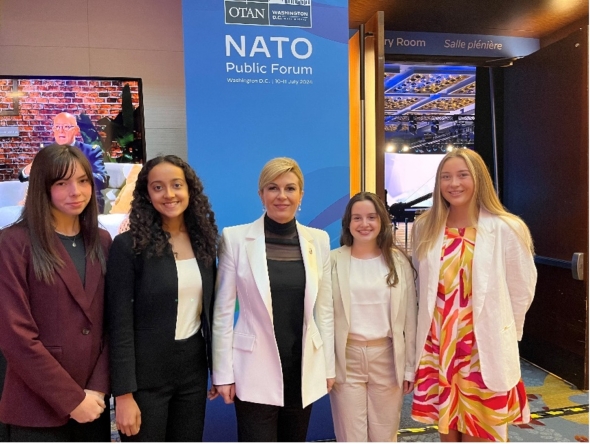
Kolinda Grabar-Kitarović, former President of Croatia